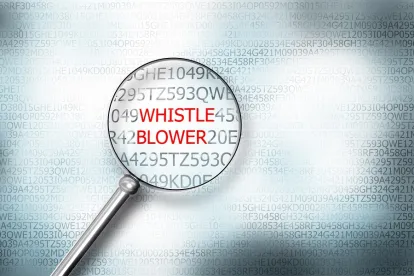In one of the first cases to address the standard governing a motion for summary judgment in a Dodd-Frank whistleblower retaliation case, Judge Jed S. Rakoff ruled that two former executives of Vista Outdoor Inc. (the Company) had failed to show that their terminations were causally connected to vague complaints about internal Company controls. Vista Outdoor Inc. v. Reeves Family Trust, et. al., No. 16-cv-5766 (S.D.N.Y. Feb. 13, 2017).
Background
The Company terminated the Executives’ employment, asserting that they improperly entered into self-dealing transactions. The Executives then filed claims against the Company under Dodd-Frank’s anti-retaliation provision, alleging that the Company discharged them in retaliation for their complaints regarding the alleged ineffectiveness of the Company’s internal controls. Notably, the complaints lacked a detailed explanation as to what exactly was improper about the Company’s internal controls and contained vague allusions to “SOX” with little or no explanation. In support of their retaliation claim, the Executives pointed to certain text messages circulated amongst Company personnel which they alleged reflected “hostility and resentment” towards the Executives as a result of their complaints, and they relied upon the temporal proximity between their complaints and their terminations.
Ruling
The District Court granted the Company summary judgment on causation grounds, while also noting that any protected activity was questionable given the vagueness of the Executives’ complaints. The court found that the text messages did not evidence “hostility and resentment,” and therefore could not establish a causal connection between the Executives’ complaints and their terminations. The court also held that the timing of the Executives’ complaints—roughly two months before the Company planned to terminate them and three months before the actual terminations—similarly failed to establish a causal link. The court noted that where a plaintiff relies solely on temporal proximity to prove causation, the protected activity and termination must be “very close,” and that district courts within the Second Circuit have consistently held under similar anti-retaliation provisions that the passage of more than two months is too long to allow for an inference of causation.
Implications
This is a valuable win for employers faced with Dodd-Frank whistleblower retaliation claims that are vulnerable to summary judgment on causation grounds, especially where the plaintiff relies on temporal proximity. It is also worth noting that the court adopted the same standard for proving causation based on temporal proximity to a Dodd-Frank retaliation claim as is applied under other federal statues, such as Title VII.





 />i
/>i

